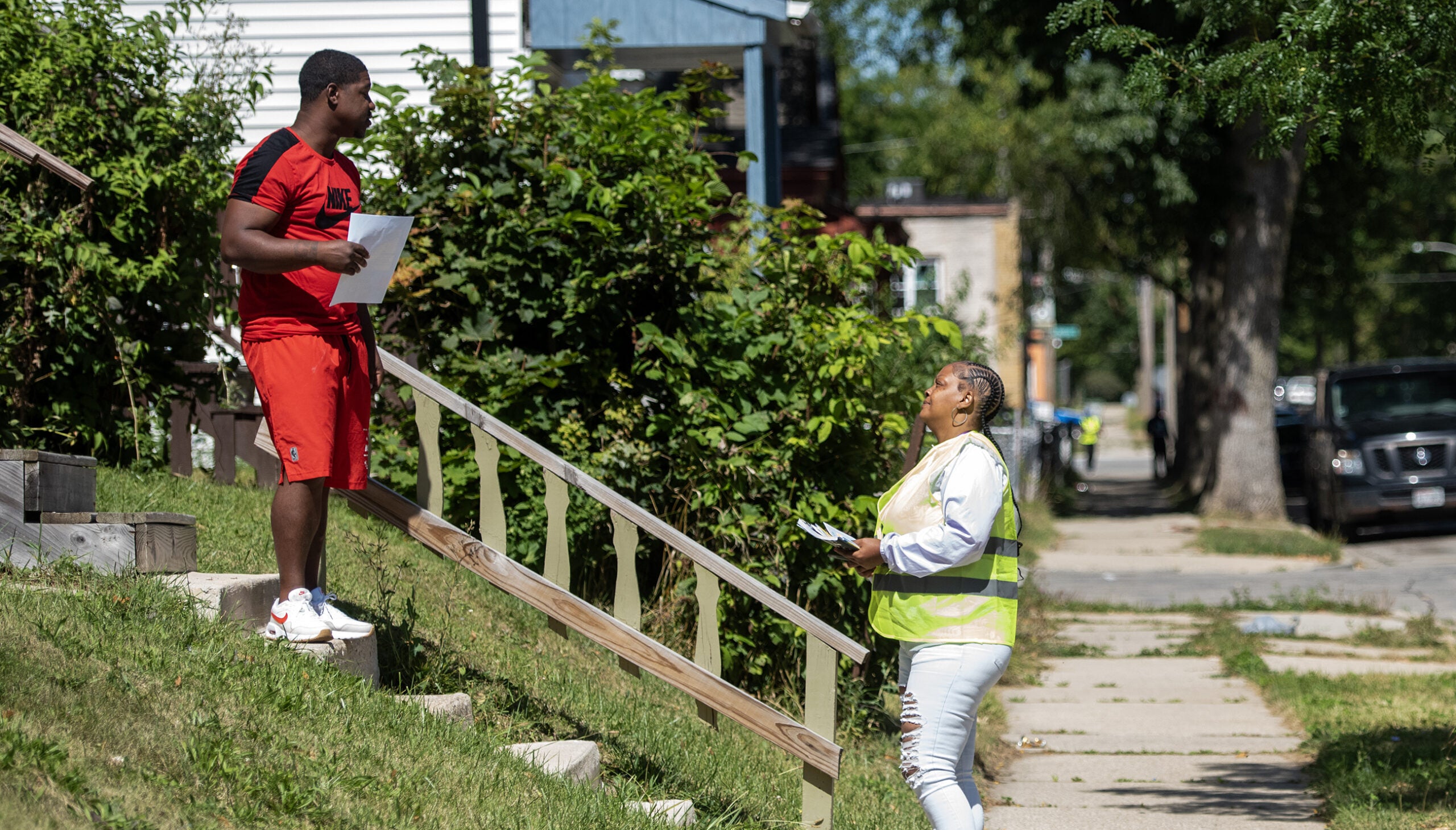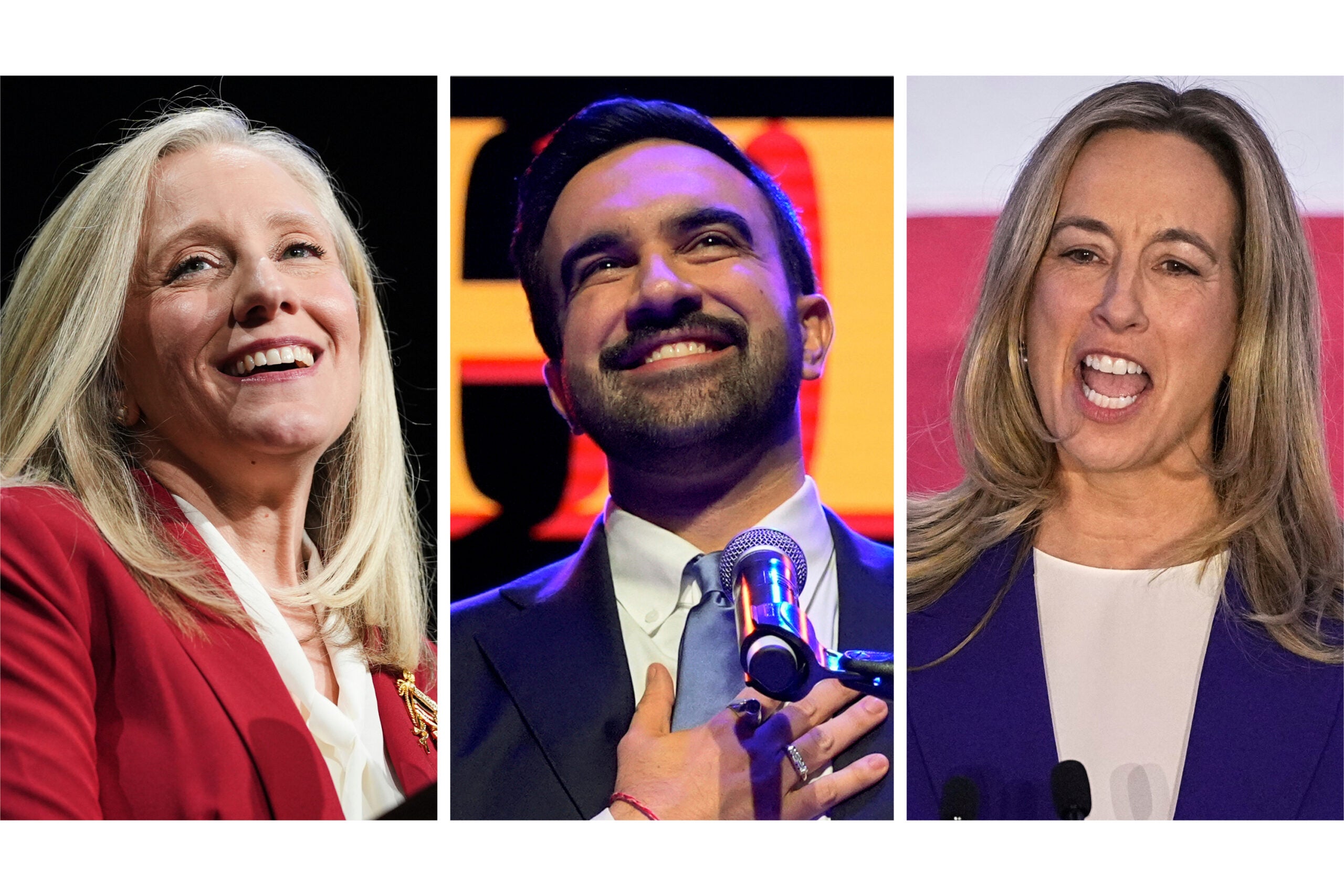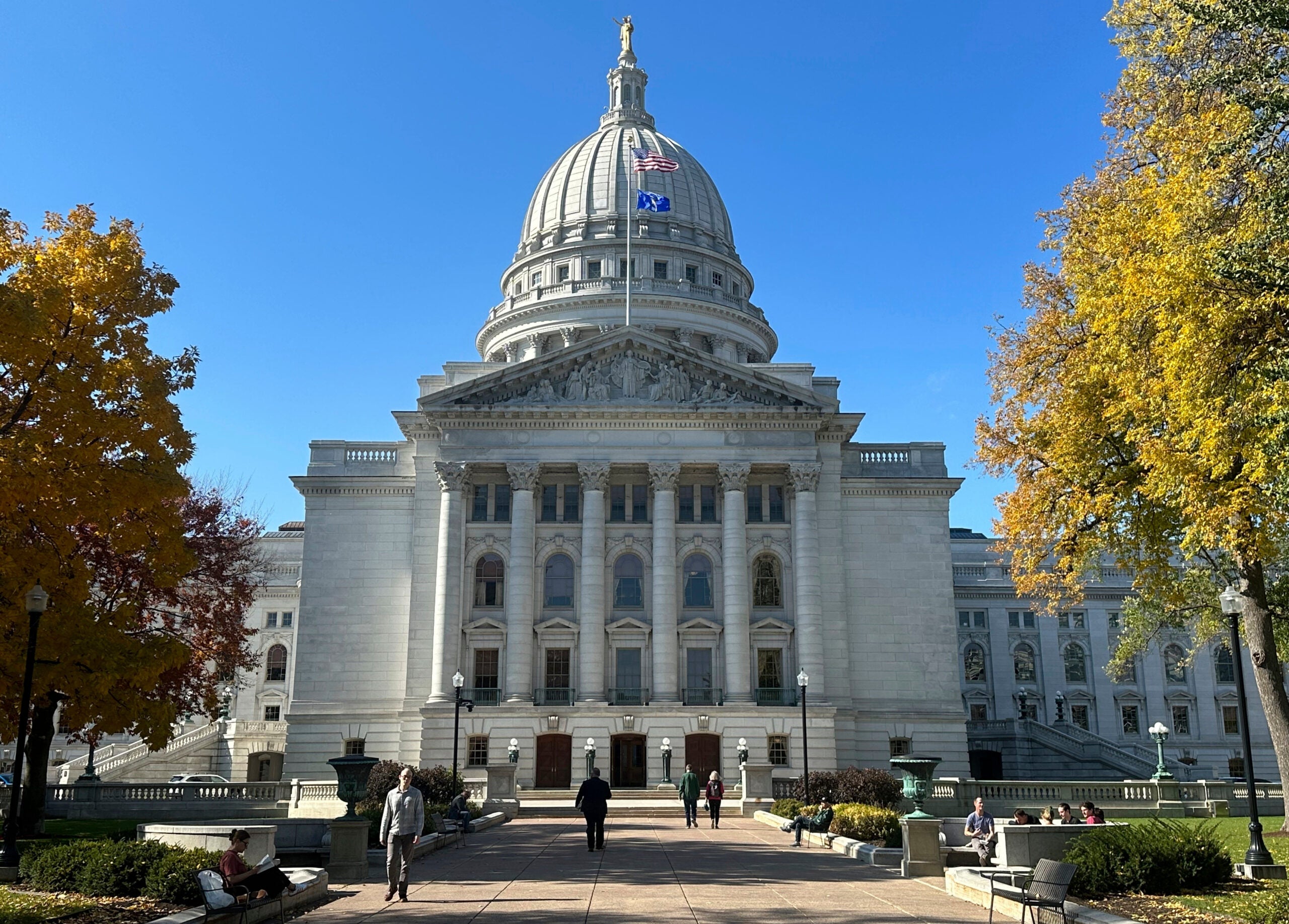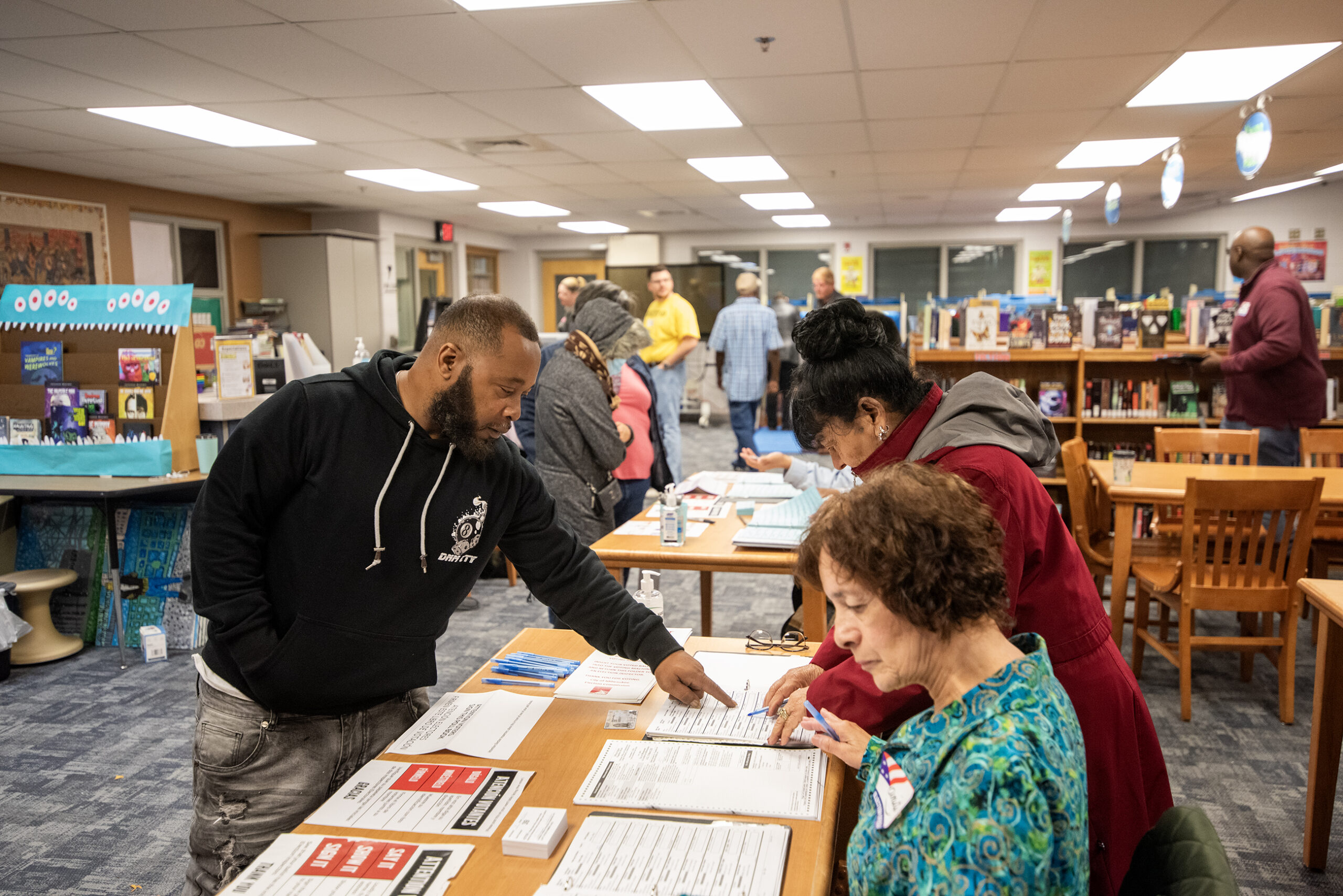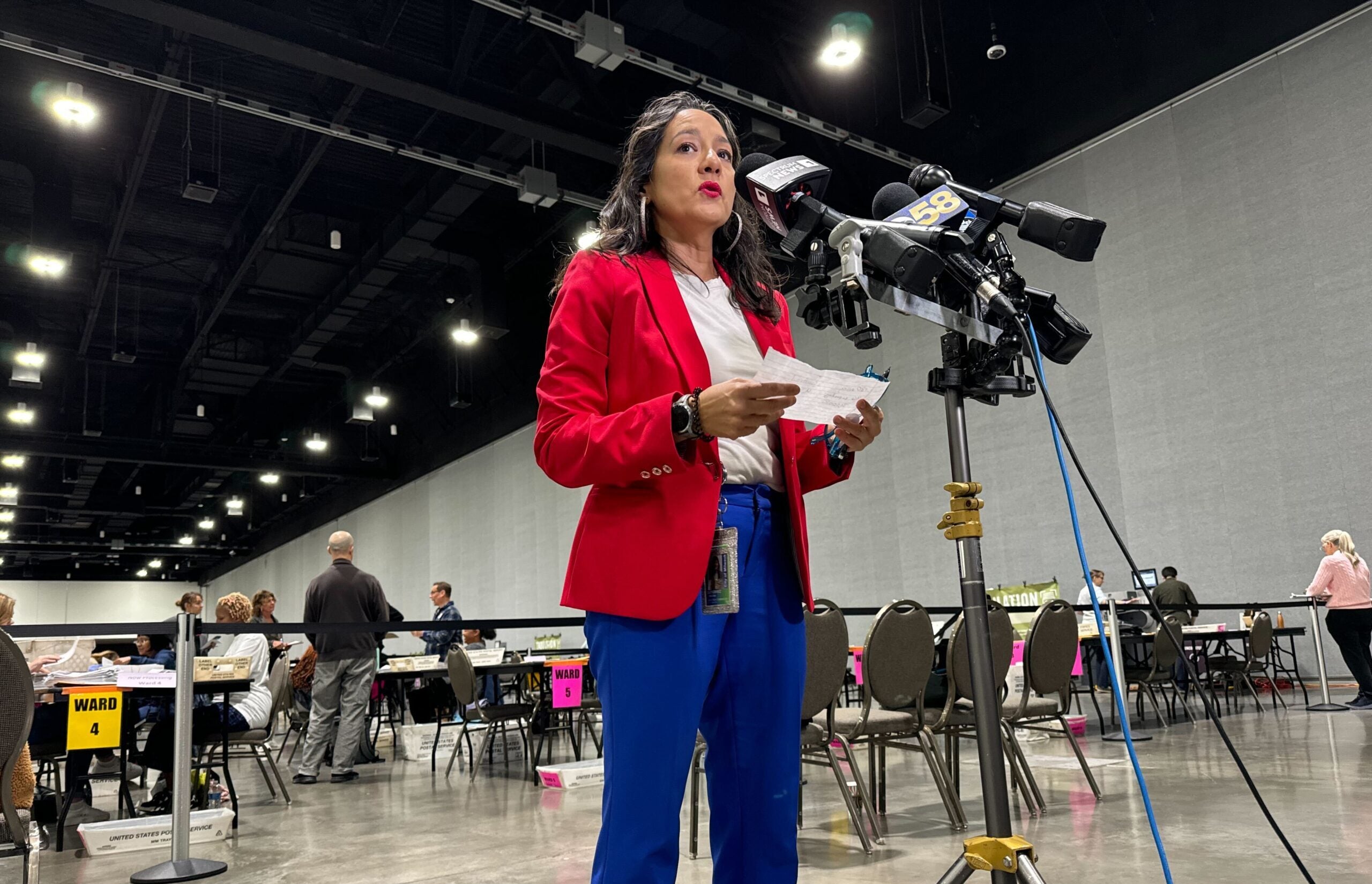On a hot and humid day in August, Jermel Hill was knocking on doors in Milwaukee’s Brewers Hill neighborhood.
Hill, a canvasser with Black Leaders Organizing for Communities, or BLOC, goes out twice a week to talk to residents about voting and how to get to the polls. Wearing a yellow vest, he walks from one door to the next to ask people if they plan to vote.
Before President Joe Biden officially dropped out of the race in July, Hill said some people he talked with were unsure about who to vote for in November. But after Biden’s exit, he’s seen an uptick in enthusiasm for Kamala Harris, the new Democratic nominee and the nation’s first-ever Black vice president.
News with a little more humanity
WPR’s “Wisconsin Today” newsletter keeps you connected to the state you love without feeling overwhelmed. No paywall. No agenda. No corporate filter.
“As soon as you mention anything about voting,” Hill said of the people he’s talked to, “they’re going to say, ‘Kamala Harris? Sure, you ain’t even have to come and knock on my door for that.’”
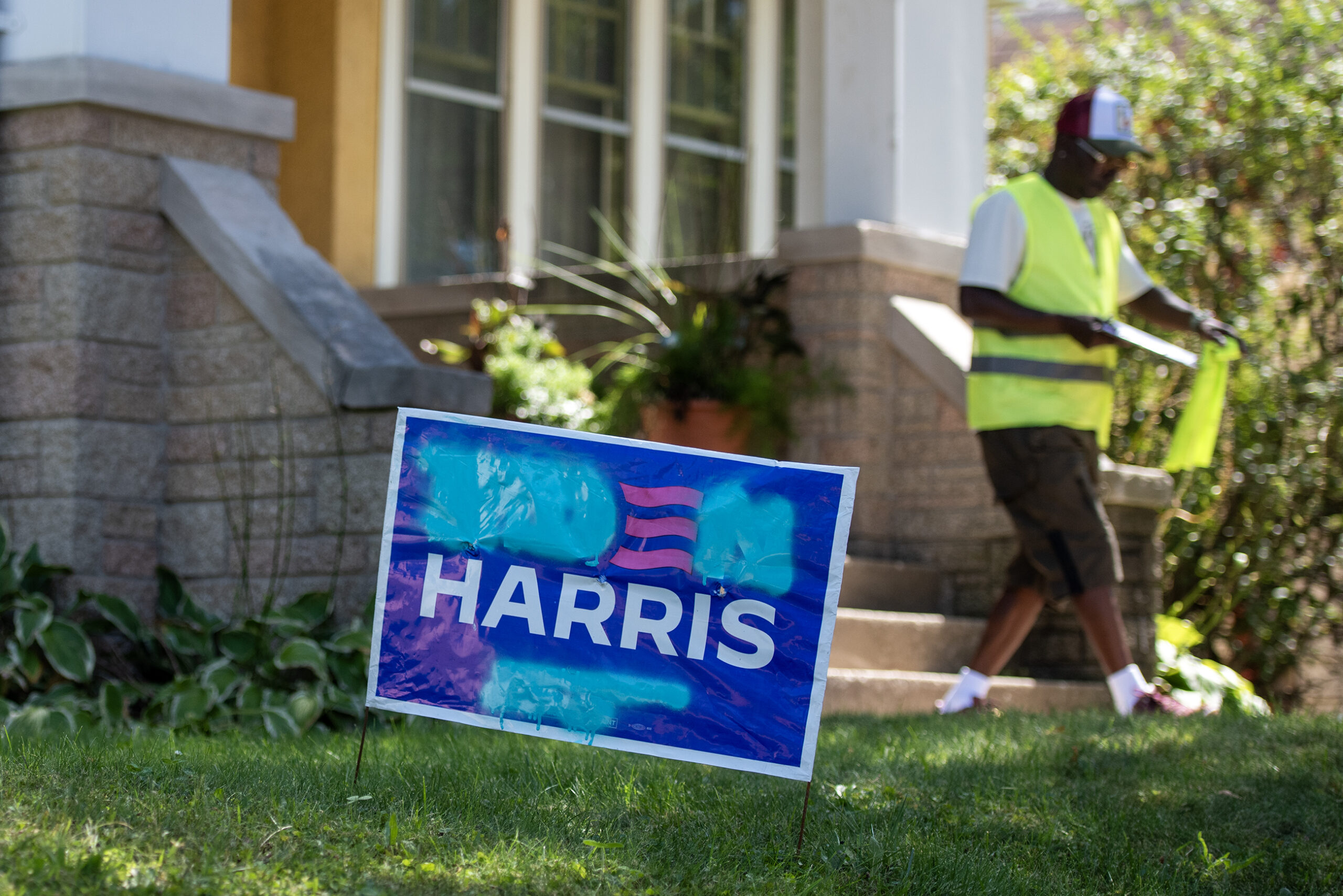
When the shakeup occurred, BLOC Executive Director Angela Lang said she saw a renewed interest in the election, as some voters expressed excitement over the prospect of voting for the first Black woman president.
“Anecdotally, I’ve had so many people come up to me and said, ‘Angela, I haven’t felt this way since Obama’s first presidency in 2008,’” Lang said. “There is a little bit of an excitement and more of a fire in the air.”
In 2008 and 2012, Black voter turnout soared in Milwaukee when former President Barack Obama ran for office. But it has been declining in the years since, according to research from Marquette University.
This year, there’s a push to get Black voters in Milwaukee back to the polls at a time when Wisconsin is again one of the crucial swing states that could decide the race for president.
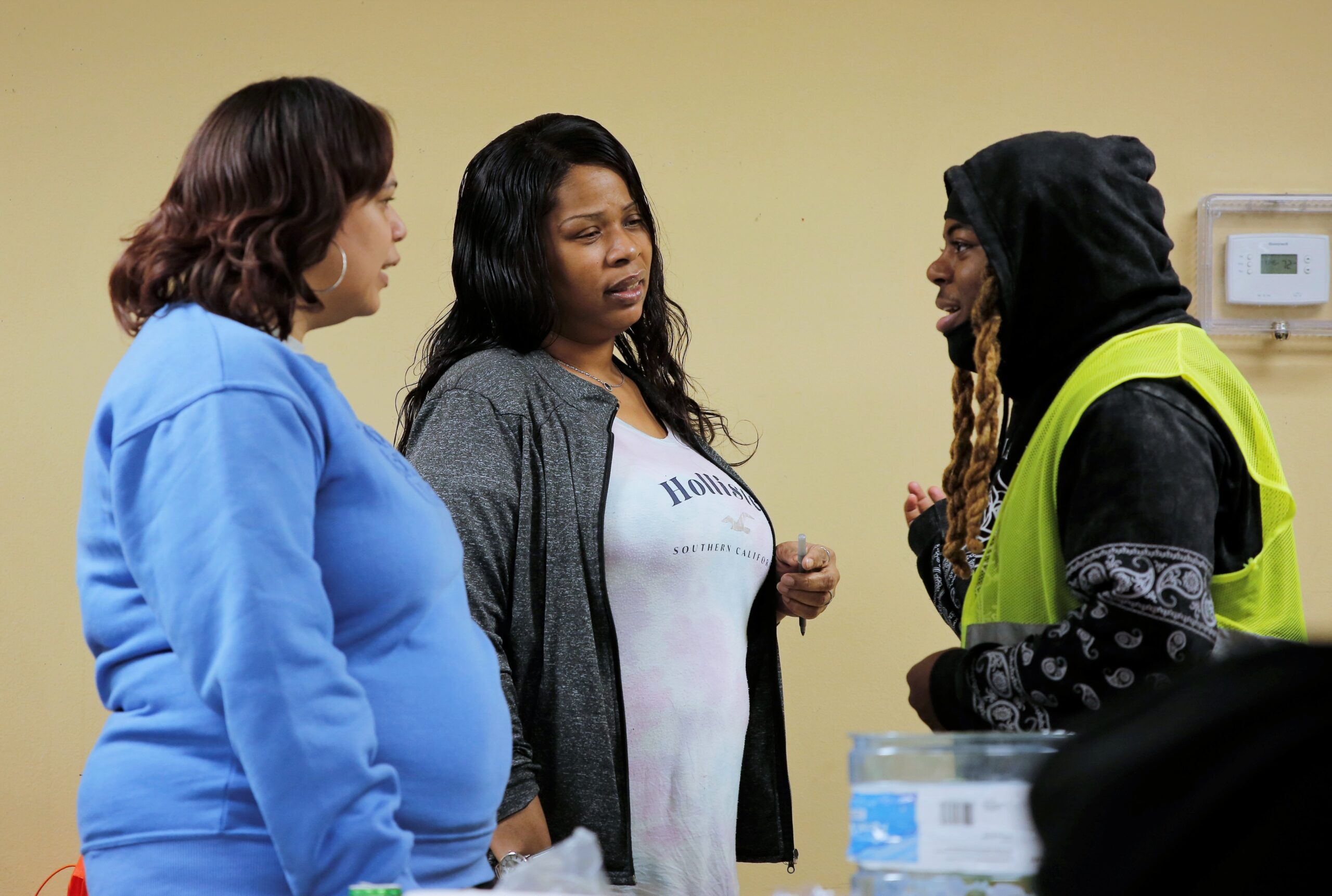
Just 6 percent — or 376,256 residents — of Wisconsin’s population is Black, according to the latest numbers from the U.S. Census. In Milwaukee, that number is at around 39 percent — or almost 223,000 — a substantial sum in a state where the last two presidential elections have been decided by around 20,000 votes.
History suggests the overwhelming majority of Black residents will vote for Harris in November, but whether Democrats hit the numbers they need to win Wisconsin remains an open question.
“I’ve been telling people that if we don’t get to numbers where Barack Obama was in 2008 and 2012, it is plausible that Kamala Harris could lose,” said Alvin Tillery, a Democratic political operative and director of the Center for the Study of Diversity and Democracy at Northwestern University. “That’s absolutely a risk.”
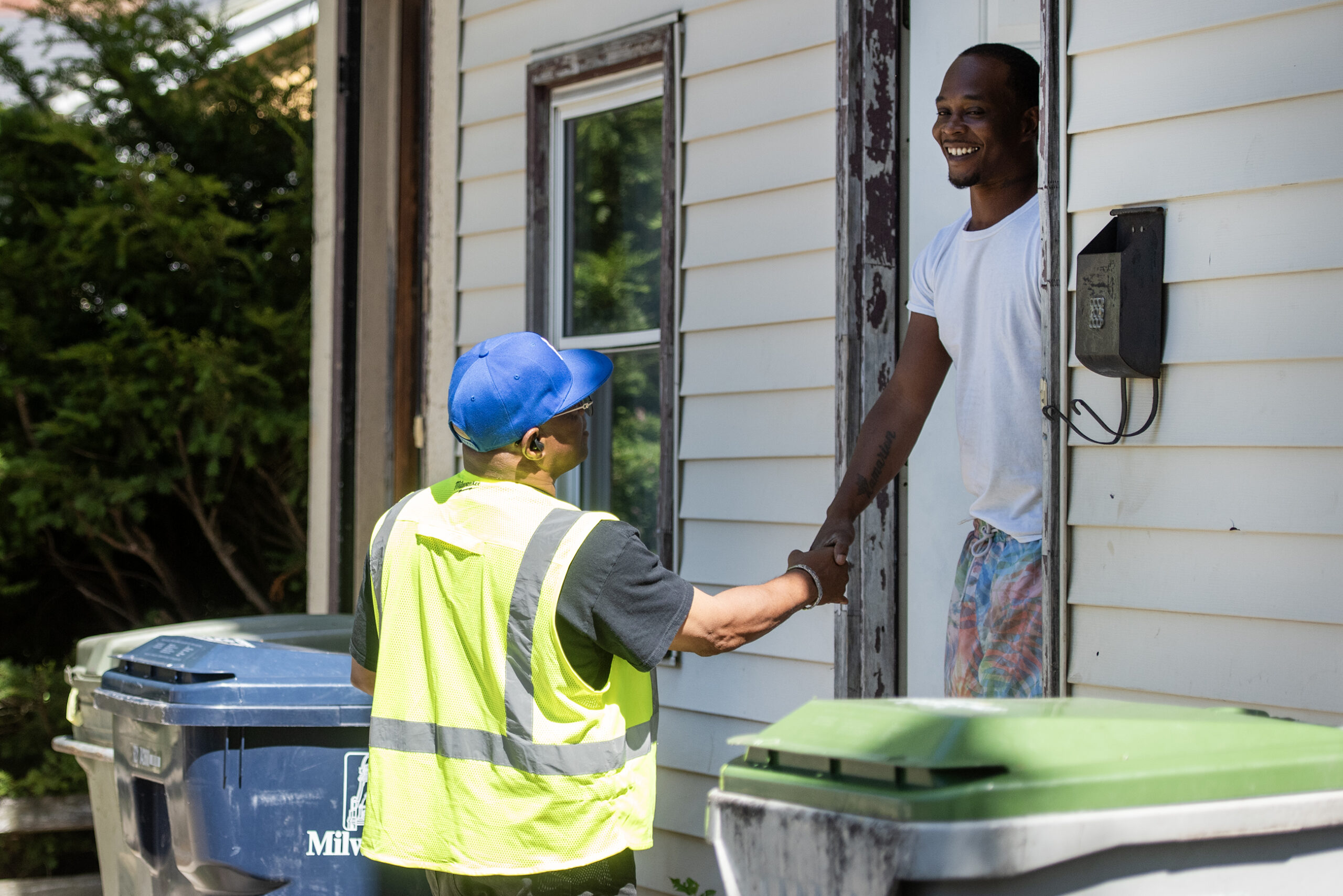
When Biden withdrew, everything changed
Before Biden dropped out of the race in July, 64 percent of Black voters across the nation said they supported him, according to a Pew Research Center survey. But an August survey found that number rose to 77 percent after Harris entered the race.
“It does feel like a lot of the excitement from 2008 and 2012 is back with Harris at the top of the ticket,” said Barry Burden, a political science professor at the University of Wisconsin-Madison.
Vaun Mayes, a community activist in Milwaukee, said Biden’s departure from the race changed the way people talk about the candidates.
“I think it shifts the conversation and puts people more focused on the political stuff, instead of all the, ‘Oh, (Biden’s) too old,’ or all that kind of stuff,” Mayes said. “And then it gets people talking more about the actual politics and the stuff the candidates have to offer.”
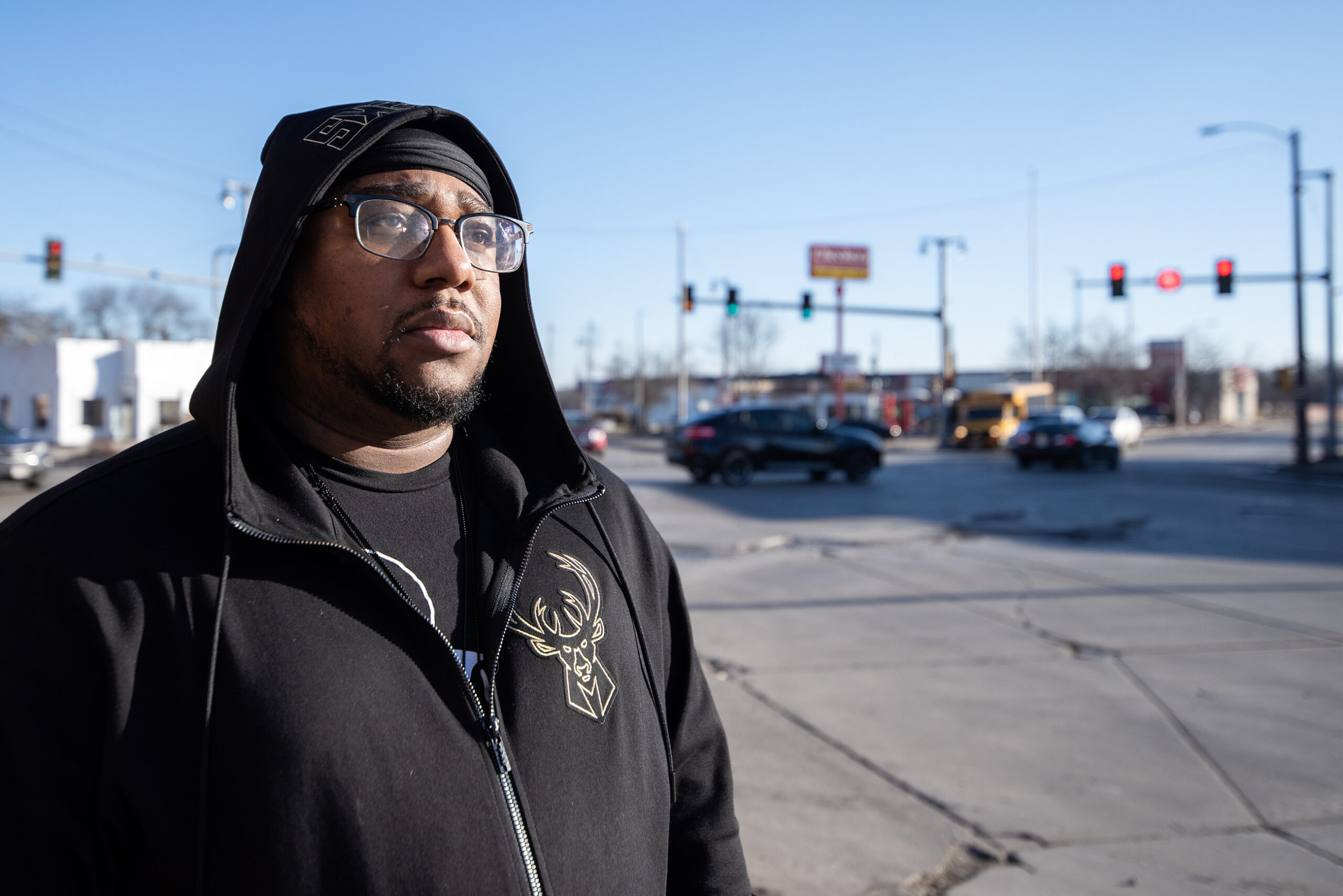
After Biden dropped out, Harris chose West Allis — in Milwaukee County — as the location of her first official campaign rally. Milwaukee Mayor Cavalier Johnson, the city’s first-elected Black mayor, met Harris on the tarmac before that event.
He said there’s a “new energy” from voters across the city, including from Black voters, since Harris has entered the race.
“When I go out and I talk to people, like, folks are energized,” Johnson said.
Johnson also said it’s exciting that Black voters in Milwaukee have the opportunity to decide this election.
“That’s what’s at stake, and that’s the power of the Black vote in Milwaukee right now,” Johnson said.
These days, Johnson is working to convince voters in the city that the Biden-Harris administration has delivered for them.
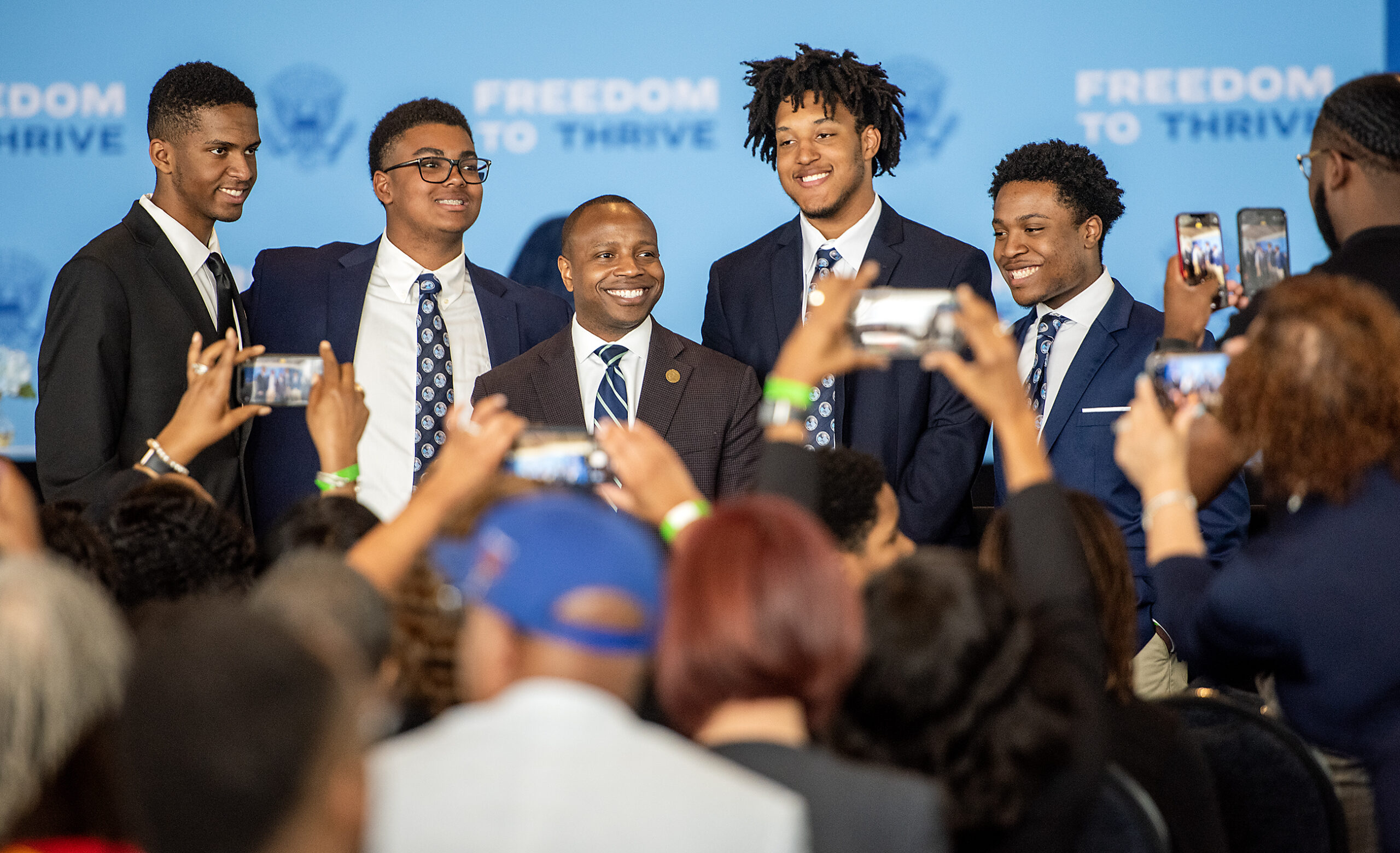
In an interview with WPR, Johnson said some national policies from the Biden-Harris administration have “matriculated down to this (local) level, too.” That includes a college debt forgiveness program, capping insulin for seniors on Medicare at $35 a month and funding to remove lead pipes across the nation.
Earlier this year, Biden also visited Milwaukee to announce a $36 million grant for a street reconstruction project, which Johnson lauded during a speech at the Democratic National Convention.
But beyond all the tangible arguments, Johnson said the historic nature of Harris’ candidacy isn’t lost on voters.
“I’m expecting for there to be a tick up, an increase in African Americans coming out to support a Black woman who’s going to be the 47th president of the United States,” Johnson said. “It’s really, really exciting.”
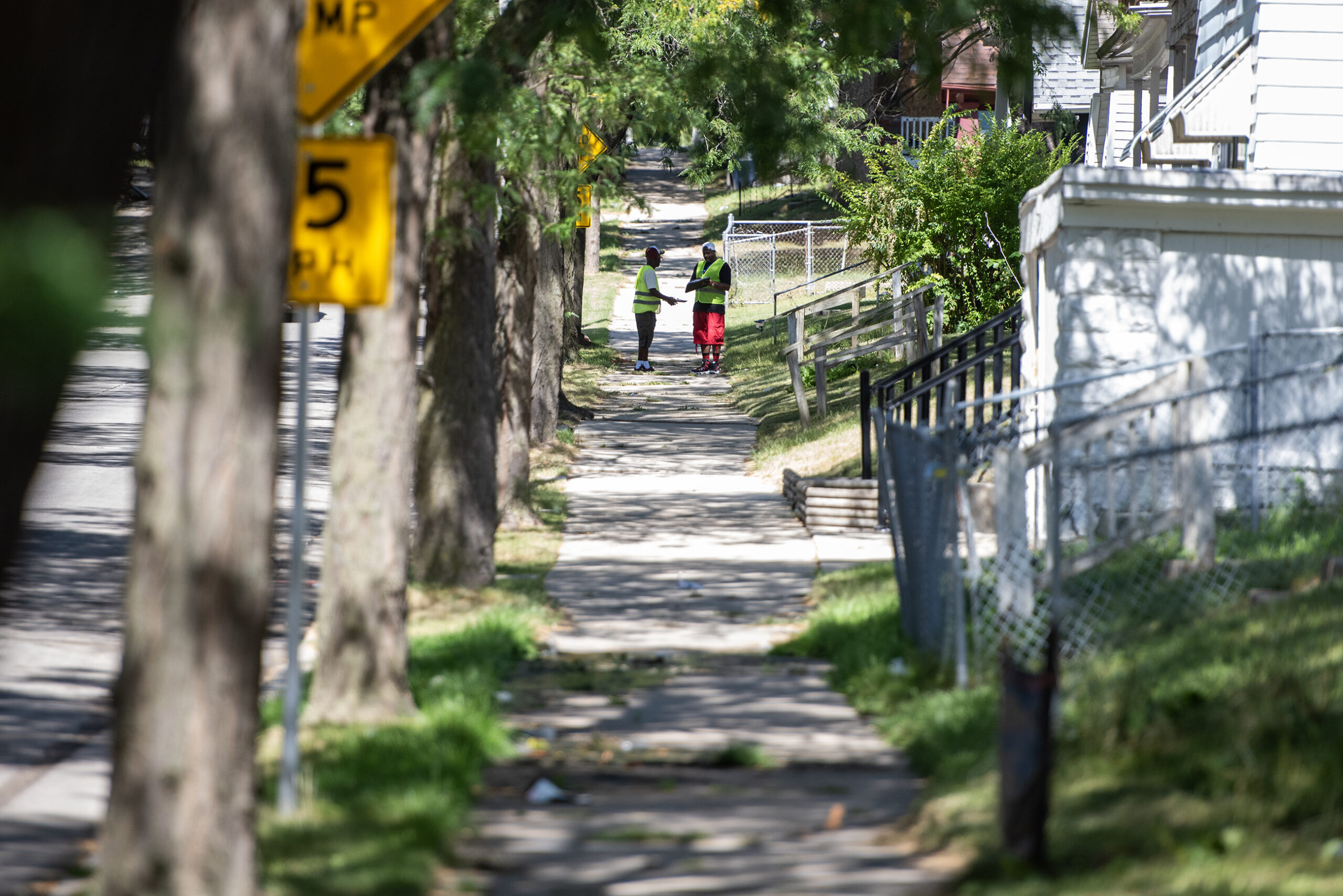
Black voters have been drifting away from Democrats for years
Tillery said Black voter enthusiasm has undoubtedly shot up since Harris became the Democratic nominee, but he thinks it could take more to reverse trends that have been developing for years.
“My fear is that the Democratic Party, they kind of think, ‘Oh, well, we’ve now got a Black nominee. Black voter enthusiasm is up. We got this,’” he said.
Tillery said his polling firm has surveyed about 30,000 Black voters over the past year. He said anywhere from 15 to 18 percent of Black voters have been saying they won’t support Democrats.
Tillery said he believes many Black voters are “disaffected” with Democrats.
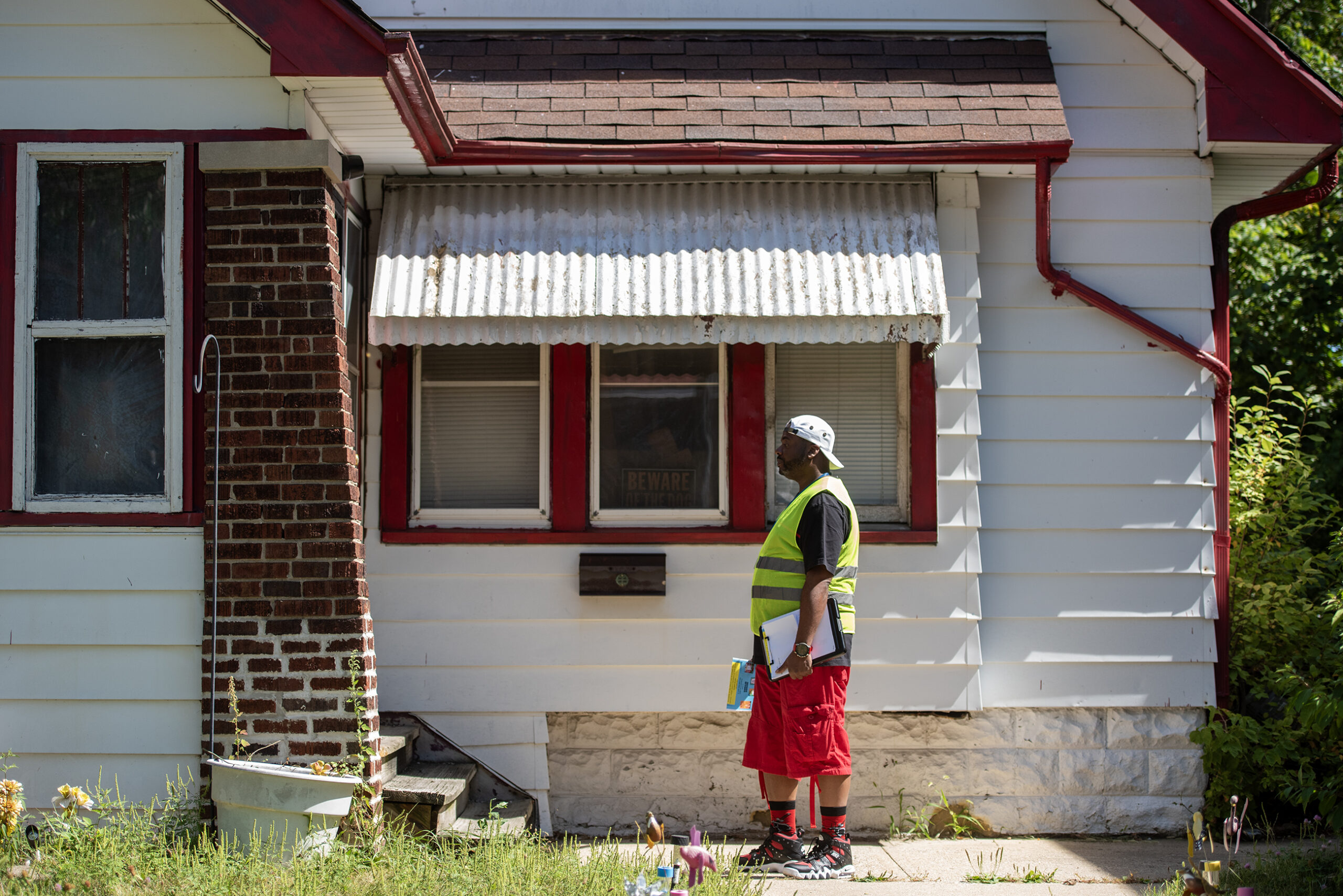
“They do not believe that (Democrats) fulfilled their promises,” Tillery said.
According to Tillery, the biggest danger for Democrats is that some Black voters will simply stay home.
Antonio Perkins fits that billing. He’s a barber at Gee’s Clippers, a barbershop near downtown Milwaukee. He voted for Biden in 2020, but says he’s not voting in this election because he doesn’t believe either political party has done enough to get his vote.
“I’m not getting caught up in the show or the circus of this political party or that political party,” Perkins said.
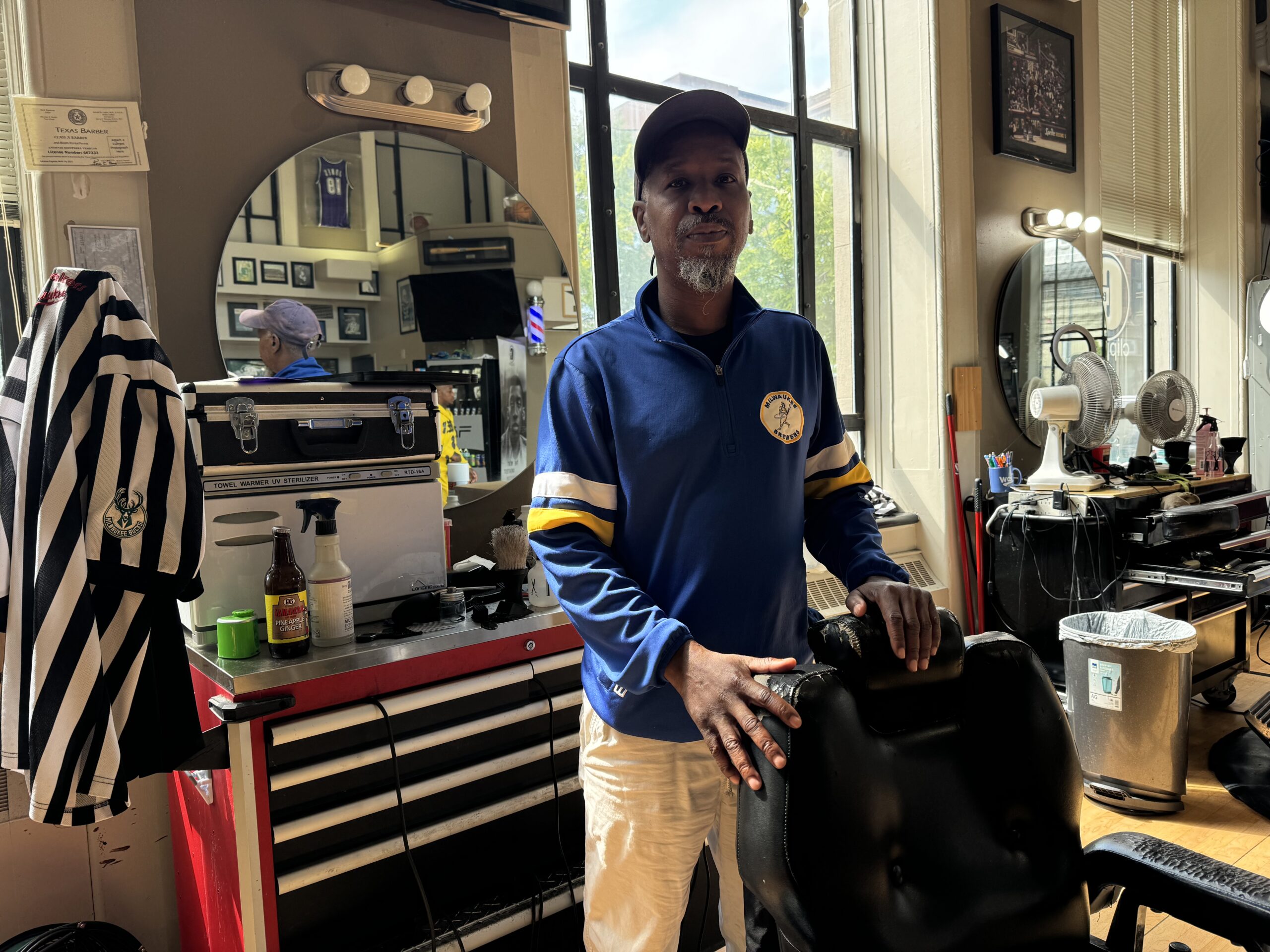
Perkins — who said issues like affordable housing, health care education and the economy are important to him — has grown dissatisfied with national politics, and instead is focused on voting in local elections.
He said he doesn’t believe that former President Donald Trump is “politically trained.” But he also doesn’t believe the Biden-Harris administration has done enough during the last four years to get his vote.
“I couldn’t tell you one thing that Biden got done since he’s been in office,” Perkins said.
Perkins said he often hears from other blue-collar workers — many of whom sit in his barber chair — who don’t believe their vote matters.
“These are the people that I speak to that it doesn’t affect who is in office in their mind,” Perkins said.
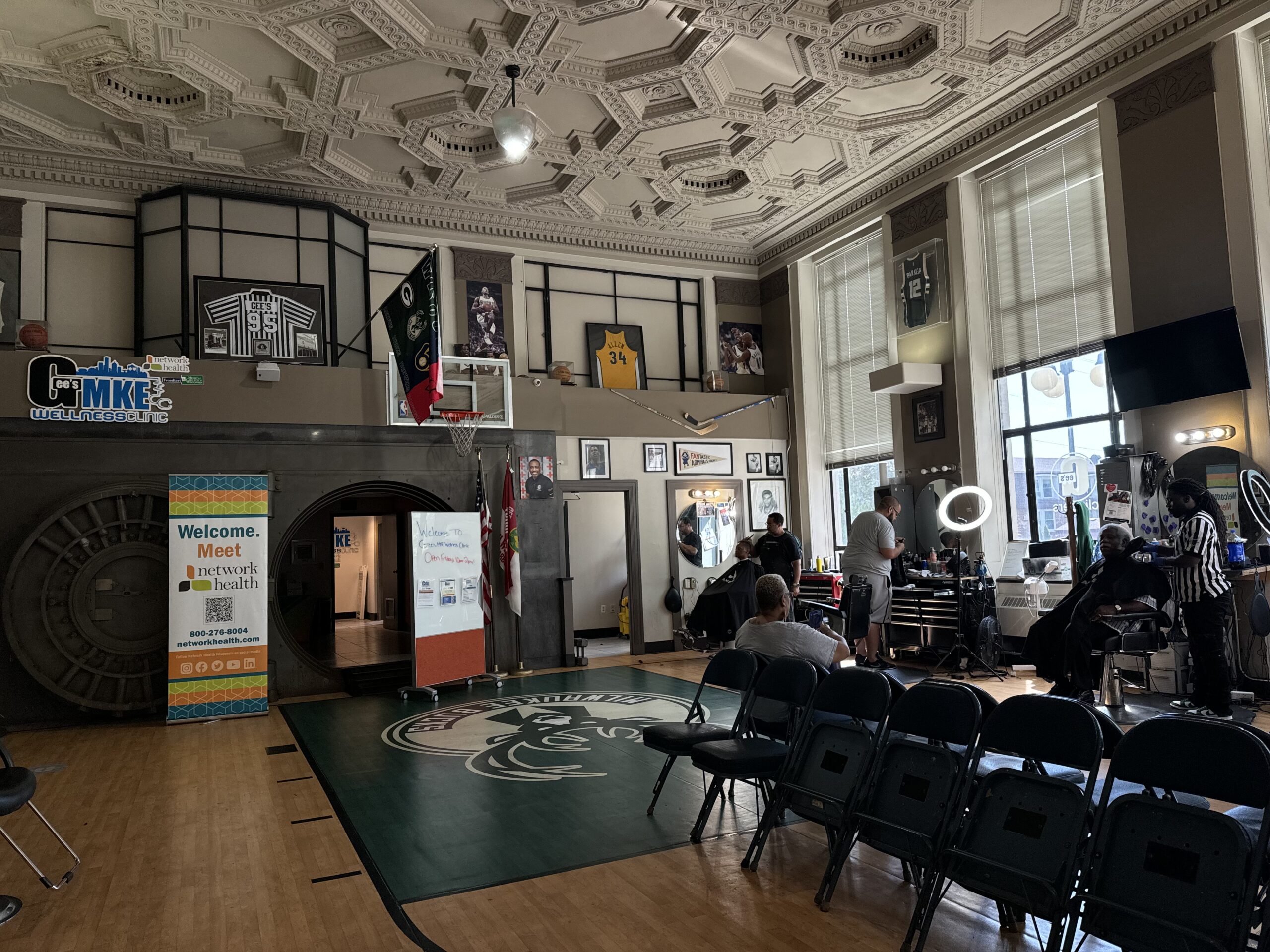
Other Black voters say they’re supporting Trump this election, including Charlene Abughrin, an entrepreneur who lives in Milwaukee. She said she voted for Obama in 2008, but has since voted for Trump in 2016 and 2020, and plans to do so again this year.
Abughrin said she believes the former president will be better for the economy if elected.
“I plan to support Trump because I think he did such a wonderful job in 2016, and I think he’s just going to bring back some of his business acumen back to the country,” Abughrin said.
“I think he’s going to turn around the entire economy of the country,” she added.
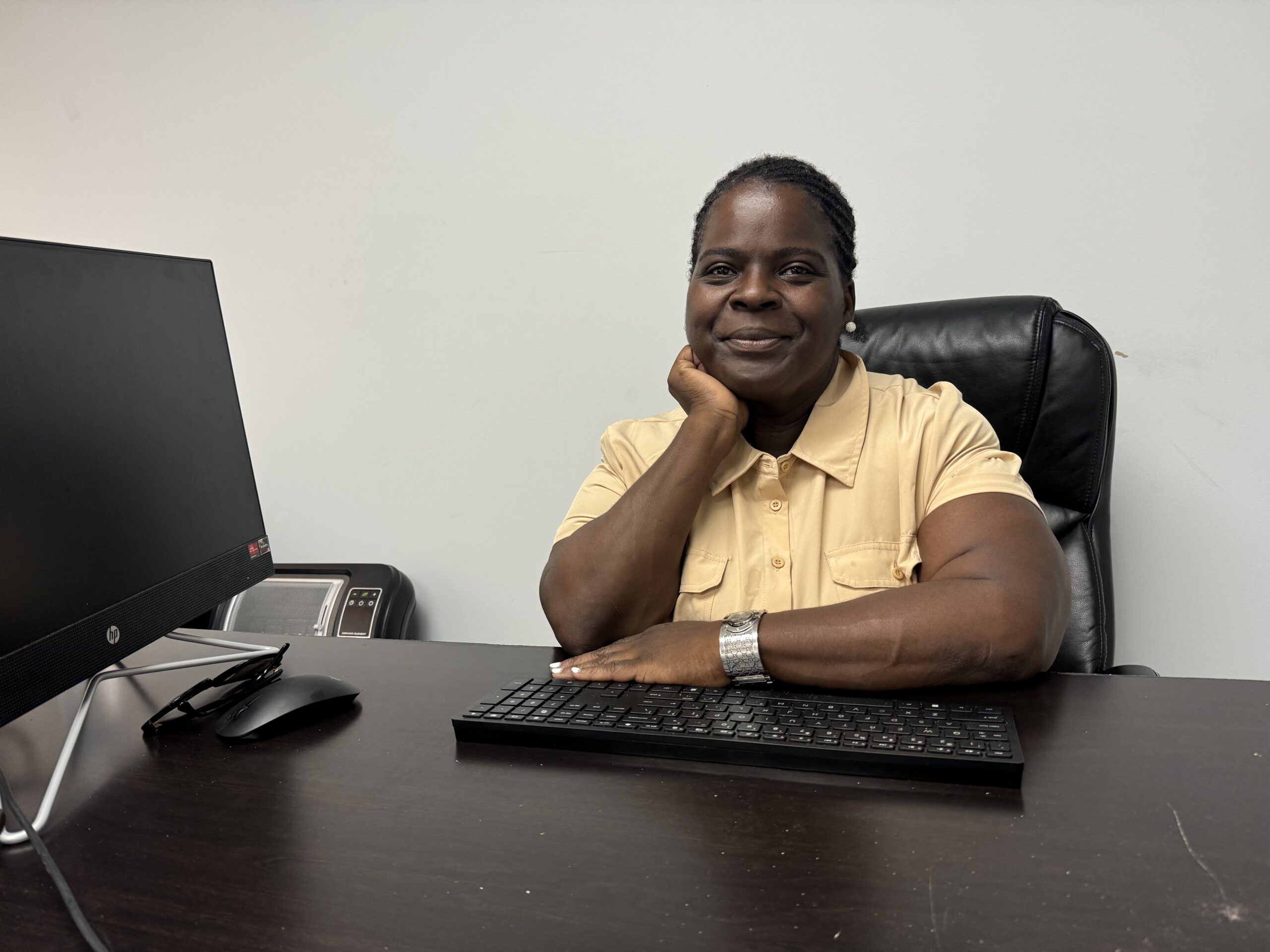
Trump hasn’t held a campaign rally in Milwaukee so far this year. A spokesperson for the Trump campaign didn’t respond to a request for an interview for this story.
Trump did announce a coalition of Black Republican leaders from across the nation who are supporting him, titled “Black Americans for Trump.“
A website said Trump’s policies on the economy, immigration, energy, law and order and foreign policy will benefit Black Americans.
Shanice Jones, another canvasser with BLOC, said she believes some voters have been swayed by popular Black artists like Ye, the rapper formerly known as Kanye West, or Kodak Black who have voiced support for Trump. She also said she’s heard from some who plan to vote for him because they received stimulus checks during the start of the COVID-19 pandemic in 2020.
She said some voters who plan to vote for Trump don’t realize Biden also handed out stimulus checks after he was elected president.
Harris’ historic candidacy has many Black voters excited
But in a city that remains a Democratic stronghold, many Black voters are looking forward to supporting Harris.
BLOC is just one group reaching out to voters ahead of the election. There are several other similar organizations also canvassing voters, including Common Ground, a grassroots activist group.
On a Tuesday afternoon in September, organizers with the group went door to door at Mitchell Court, a public housing property on the city’s south side. One of the people they talked to was Cynthia Mitchell, who has lived at the property for 16 years. She said she’s voting for Harris.
“I think she’ll make the change in the world, and we really need that change,” Mitchell said.
Michelle Johnson, who has lived at Mitchell Court for just under a year, is also a Harris voter.
“I’m just hoping that everybody go out and vote for her, because if we don’t, we’re going to be in a rude awakening,” said Johnson.
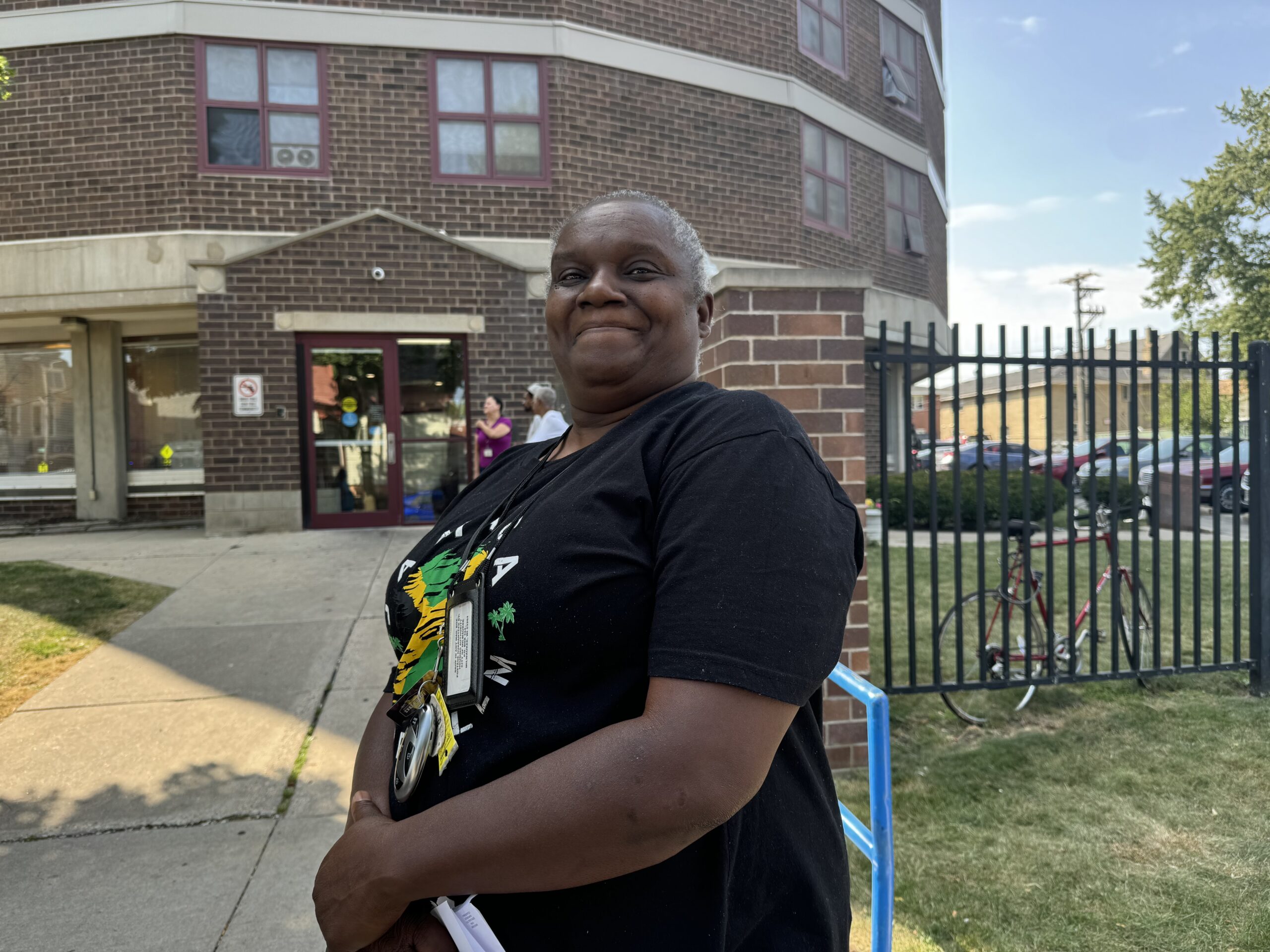
Roye Logan said even though she’s planning to vote for Harris, she’d like her to come see the living conditions at public housing properties across the city, as residents have banded together to raise concerns about what they say are unsafe living conditions at the properties.
“We already know Donald Trump don’t care about us,” Logan said. “But what is Kamala going to do?”
There are around 95 residents living at Mitchell Court, many of whom are Black, elderly and low-income. Logan said she believes almost all of them will show up to vote on Nov. 5, and hopes politicians will take note.
“We want decent housing, just like they have decent housing. We want fair treatment, just like they have fair treatment. But we’re not getting it,” Logan said.
For other residents, like Effie Bey, a 76-year-old Black woman, the choice is straightforward. She’s excited to have the opportunity to vote for the first Black woman for president.
“I want to see one in office before I leave earth,” Bey said. “So I’m definitely voting for her.”
Wisconsin Public Radio, © Copyright 2025, Board of Regents of the University of Wisconsin System and Wisconsin Educational Communications Board.

